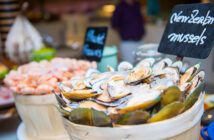By Andrew Fenton, president HortNZ
Horticulture New Zealand is disappointed to hear from the media that taxpayers will have to fork out at least $1.5 million to pay for the clean up after the Queensland Fruit Fly find in Auckland in May.
That’s a lot of money to spend on one fly.
And we had to spend it, considering what we would have lost in export trade if there had been more flies found.
The risk to the $4 billion New Zealand horticulture industry from the Queensland Fruit Fly is two-fold:
- first is the destruction caused by the pest and the on-going cost of attempting to control it, and
- second is the cost of international markets closing to our products, because those trading partners don’t want to get the Queensland pest either.
HortNZ continues to call on the Government to abandon its “direct exit” policy at airports and re-introduce 100 percent x-ray at the border.
The direct exit policy involves using “profiling” to tell if passengers are likely to be carrying plant material, rather than using an x-ray machine to find it.
The Queensland Fruit Fly and other pests come into the country on plant material – usually either in passenger bags or in imported containers.
Direct exit aims to speed up a traveller’s trip by 15 minutes.
We have heard too much about creating a trans-Tasman “domestic-like travel experience” and reducing passenger processing times.
Spending $1.5 million like this every time we find one of these flies could become a very bad habit. We don’t want to have to go through this again in six months’ time.
This government’s determination to cut costs has now cost all of us big money, and risked billions of dollars in national earnings.
By contributing editor Les Watkins
More than two million time-savers have now waltzed through the direct exit since its introduction.
A recent TV3 investigation showed just how many of that number could be creating a hazard because of stupidity, forgetfulness or downright dishonesty.
It unveiled an audit showing that six incoming travellers out of 709 randomly stopped, after taking the direct exit option, had at-risk items such as fruit or plant material.
If that percentage was roughly mirrored by the two-million-plus who’ve used this system, risk carriers have totalled well over 17,000.
And they’re still arriving.
The bizarre mix of items which has recently been confiscated includes an ostrich leg, illegal bear bile and even the dried penis of a deer.
Taxpayers foot the bill, of course, when there is a slip.
Primary Industries Minister David Carter prefers to talk about the value of the Ministry “in growing and protecting the primary sectors, the powerhouse of New Zealand’s economy”. That view is endorsed by the Public Service Association which represents nearly 60,000 workers.
National secretary Richard Wagstaff says: “We already have a border security service which has undergone a lot of change due to the merger of MAF and MFish into the Ministry for Primary Industries.
“Morale and staff numbers are well down due to what appears to be a shrinking lid policy of frontline positions.”
A Cabinet paper obtained under the Official Information Act outlines a range of proposals to further “streamline” the border security system.
“The public needs to be reassured that New Zealand’s biosecurity will not be seriously weakened and biosecurity management at the border simply left to chance,” says Mr Wagstaff.
“Further cuts would also make a mockery of the government’s claims that frontline jobs would not fall victim to its slash and burn approach.”






























































































